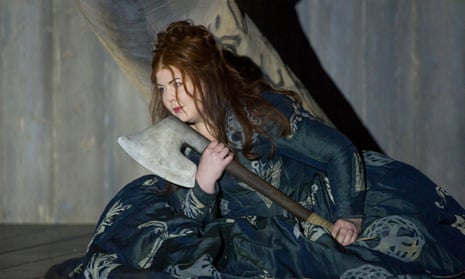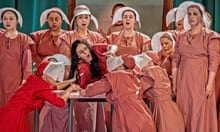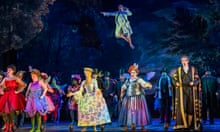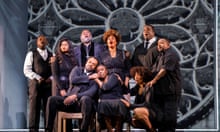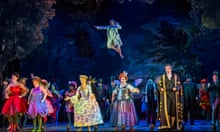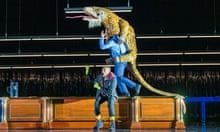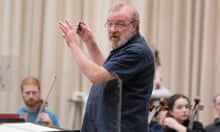English National Opera was founded by Lilian Baylis, the visionary impresario who laid the foundations of not just ENO but the National Theatre and the Royal Ballet. She was 15 years older than John Reith, the first general manager of the British Broadcasting Company, and these great organisations emerged into the same cultural climate in the 1920s and 30s. (Baylis had in fact started presenting operas before the first world war at the Old Vic, but it was in the 1930s that Sadler’s Wells theatre became the settled home of her ballet and opera companies.)
The organisations shared a pioneering spirit: one of invention, cleverness, adventure, in the early days often in slightly shabby and improvisatory contexts. Most importantly, they also shared a strong sense of purpose and ideology: the high culture enjoyed by the privileged should be the province of all. It was for the many, not just the few.
In different ways and at different speeds, these organisations all became institutions that, along with the universities, were really appendages of the postwar welfare state, supported by government funds because they were seen as contributing to the spiritual health of the nation. The 1960s demolished the notion that “high” culture was the only culture worth arguing for. Under Thatcher and Blair, culture was asked to justify itself on a number of mainly economic grounds: it was part of the “knowledge economy” or the “cultural industries”. This long-term trend, you could say, has found its perfect expression in the fact that ENO currently lacks an artistic director and a music director and is, for the moment, being run by a chief executive whose previous job was as a management consultant from McKinsey.
This lack of a music director is down to the abrupt resignation of conductor Mark Wigglesworth. As a figure of international repute, his loss is lamentable, and was greeted instantly with fury and sadness (directed at ENO’s board) by some of the company’s greatest vocal stars. In his leaked letter to musicians, Wigglesworth wrote that “the company is evolving now into something I do not recognise, and as hard as I have tried to argue to maintain what I believe to be the fundamental pillars of our identity, I have failed to persuade others of this necessity”. In recent months he has presented colleagues and the board with suggested cost-cutting measures, especially to production costs such as actors employed – measures urgently necessary given the reduction of Arts Council England funding from £17m to £12.38m.
While his departure is to be mourned, there are some who believe Wigglesworth should have stayed on, however difficult his position, for the sake of the company, until the arrival of an artistic director to succeed John Berry (interviews have been happening this week, and an announcement expected by the end of April).
Others have argued that Wigglesworth’s cost-cutting suggestions ate into production costs rather than musical costs, protecting his own area. Senior management at ENO say every single possible avenue has been visited, every option raked over, every unthinkable thought considered, and that the current proposals are the best chance the company has to balance its artistic identity against the inescapable realities of its financial situation and the absolute necessity of putting forward a credible strategy for the next funding round. That means employing the chorus for nine months of the year, running two sub-seasons in spring and autumn, and hiring out the Coliseum at other times while the company performs on other stages.
One thing is certain: there will be no bailout, no magic funds from Arts Council England. If ENO is to survive, it must do so in reduced circumstances. It is an understandable impulse for the company’s defenders to decry any cut or any change. But it must change. Its history is full of change. It moved to the Coliseum only in 1968, for example. At the same time the question of what ENO is – what it is in its bones and sinews – must be cherished and protected.
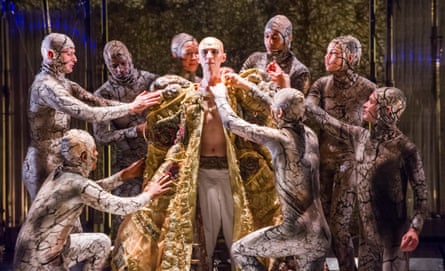
In my view, what ENO is is twofold. First it is people, its singers, players, its backstage and front-of-house staff. Second, it is those founding values, albeit remade and reframed for today, that Baylis breathed into the work of her young companies.
The situation looks bleak. But it need not to be terminal. ENO needs strong artistic leadership and much better governance. Louise Jeffreys, head of arts at the Barbican and a former technical director of ENO, has joined the board this month and is a wise and careful head, precisely what is needed. But it is still overbalanced in the direction of those with no experience of the delicate and difficult work of running arts organisations. It is hard to imagine who would want to become artistic director of ENO under the current circumstances, but one can only hope that someone with an iron will and a determination to rescue this much-loved company will emerge from the car-wreck that we see at the moment.
ENO may have sprung from a historical moment alien from that in which we find ourselves now, but its founding impulse – that the strange, camp, glittering, ridiculous, glorious, disturbing, heartstopping artform of opera has something to say to us – is still valid. For many years now, ENO has been a paradoxical place. It has had a superb orchestra and chorus, the best technical team in Britain, and has produced artistically brilliant work. This is true even now, as everything seems in a state of disintegration, with its productions of The Magic Flute and Akhnaten. And yet there has been no sense of what the organisation is for, or for whom. No sense of purpose, and no sense of identity. The choice of artistic director is absolutely crucial. It is the make-or-break moment.
